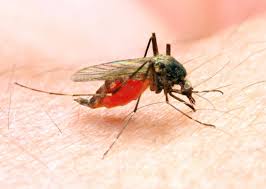Few weeks from now, the world will mark another malaria day. United Nations has made it a yearly ritual. Money- whooping amount- is spent to combat the malaise. Is the malaise abated?
Today, Straightnews, your reading companion, takes a look at the amounts US and Nigerian governments are said to be sspending to bring ‘stubborn’ malaria to its knees.
Available records show that United States government spent $75 million annually from 2013 – 2016 to combat the malaria scourge in Nigeria.
The Guardian of April 25, 2017 quoted David J. Young, the US Deputy Chief of Mission, saying: “Today, April 25, 2017, people across the World would lend their voices and renew commitments as part of global events to control malaria.”
Young who broke the news at its embassy in Abuja said that Nigeria had also received approximately $419 million from the U.S. government President’s Malaria Initiative (PMI) between 2010 and 2016.
According to him, Nigeria received the largest PMI budget among the 19 PMI countries in Africa. The PMI is led by United States Agency for International Development, USAID and complemented by the Centre for Disease Control (CDC).
Young restated the US government’s commitment to the global movement to end malaria and urged stakeholders to play their roles to achieve the goal.
He stressed the need to end the malaria scourge to prevent more than 80 million estimated illnesses and 300,000 related deaths annually.
He said: “Ending malaria would increase school attendance, boost worker productivity and significantly lower out-of-pocket cost for treatment.”
Young stressed that the huge numbers of illnesses and deaths, motivated the PMI and USAID to commit itself to raising the awareness about the proper prevention, diagnosis and treatment of the disease.
He said experts had warned that early and accurate diagnosis was essential for rapid and effective disease management and surveillance, stressing that malaria diagnosis was important, as any misdiagnosis would allow the disease’s progression from uncomplicated to severe forms, resulting in significant morbidity and mortality.
However, Nigeria was said to have spent N132 billion annually in the fight against malaria, according to United States.
The Vanguard of April 26, 2016 reported that Nigeria’s National Malaria Elimination Programme annually costs her about N132 billion ($660 million) annually.
The newspaper quoted Mr James Enwinstle, the then United States Ambassador to Nigeria that despite Nigeria’s current ‘’tremendous progress’’ in malaria elimination, much commitment was still needed.
He spoke on the theme “Ending Malaria in Nigeria for Good,’’ “In Nigeria, the National Malaria Elimination Programme estimates malaria costs the Nigerian economy about N132 billion ($660 million) annually.
“Despite Nigeria’s tremendous progress, we must remain committed to our fight against malaria.
More than 430,000 people around the world still die each year from this preventable and treatable illness.
“Ninety per cent of all malaria deaths occur in sub-Saharan Africa. The vast majority are children under five, as malaria kills one of our children every two minutes,’’ he said.
According to him, Nigeria has in the last 15 years made historic progress in turning the tide against malaria. He said that Nigeria’s aggressive programme, since 2011, had reduced children’s mortality, leading to a decline by 15 per cent.
The Ambassador said that his government was providing Nigerian communities and families with a mix of tools to fight malaria, under its President’s Malaria Initiative (PMI). He listed such tools to include long-lasting insecticide-treated mosquito nets, indoor insecticide spraying campaigns, drug therapies to treat infections, prevention and treatment of malaria in pregnancy, and community education campaigns.
Entwistle also said that his government was supporting Nigeria in the training of medical personnel and community health workers, to care for people with malaria. “In Nigeria, the PMI works with national partners such as the Ministry of Health and the National Malaria Elimination Programme.
“The PMI also works with the UK Department for International Development, the World Health Organization, and the Global Fund in providing insecticide-treated nets for all individuals living in malaria-endemic areas. “This year alone, the PMI will provide 8.7 million nets to families in Nigeria,’’ he added.
Unfortunately, malaria is no longer a killer disease in the white man’s country, but in Africa, it is still a prowling agent- killing many without proffered solution because various African indeed Nigerian governments play politics with the prevention and treatment of malaria.

